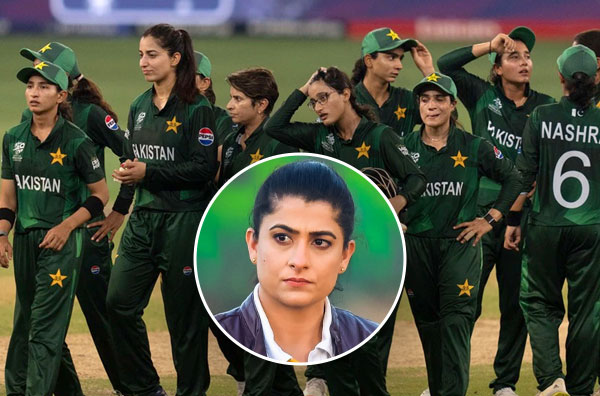The Pakistan Cricket Board (PCB) finds itself in hot water after failing to honor its commitments to the national women’s cricket team. Despite making public promises to enhance salaries and provide greater support for women’s cricket, the board has left players unpaid for several months, fueling disappointment and discontent within the squad.

The PCB announced a modest 3% salary increase for women cricketers. Yet, five months later, no tangible progress has been made. The salary increment remains unfulfilled, leaving the players questioning the board’s sincerity. Reports suggest that the team’s concerns, raised through private channels, have been repeatedly ignored, deepening the sense of mistrust.
This controversy was brought to light by Sana Mir, a former captain of the Pakistan women’s cricket team and a member of the Women’s Cricket Association (WCA). Speaking candidly, Mir expressed her disappointment over the PCB’s handling of women’s cricket contracts.
“As far as the women’s team is concerned, unfortunately, I have to say that we had praised PCB a lot, and it was on this empty aspect that their contract has been increased by three times. When reality came in, five months later, girls did not get even one rupee. From July till now, they did not receive any contracts, and when finally, these contracts were offered, the same-to-same previous contract got replicated, and they are not getting any daily allowance in the camp,” Mir revealed.
The PCB’s lack of action casts doubts on its recent claims of prioritizing women’s cricket. In August, the PCB spoke of revolutionizing women’s cricket by creating opportunities for young talent and enhancing the sport’s profile nationwide. Yet, the stark reality of unpaid salaries has overshadowed these announcements, raising questions about the board’s ability to deliver on its promises.
The issue also highlights broader concerns about the PCB’s administrative shortcomings, with the board already facing criticism for its handling of domestic cricket, delays in awarding central contracts, and financial mismanagement.
“So, I don’t know why this attitude toward women’s cricket. I was very happy when I met the chairman, and he told me these are our plans, but I don’t know why these have not been implemented, and we have come back and stood on zero. So, I hope this will be addressed and changed,” Mir concluded.
In July, the PCB introduced a revamped contract structure aimed at fostering a more performance-driven culture. Players were categorized into four tiers: A, B, C, and D. Unlike the previous year, which saw 20 players signing lucrative two-year contracts with significant pay raises, this year’s contracts reflected a sharper focus on recent performances.
Rising stars like Fatima Sana and Muneeba Ali were rewarded with upgrades, showcasing their growth and contributions to the team. However, the exclusion of seasoned players such as Aliya Riaz and Nida Dar raised eyebrows, highlighting the tough calls made during the evaluation. Despite these changes, the underlying issues of unpaid salaries and unfulfilled promises rendered these developments insignificant, leaving players disheartened and questioning the board’s commitment.
As of now, the PCB has yet to issue an official response regarding the delayed payments or the status of the promised salary increase. This silence only adds to the growing dissatisfaction among players and fans, leaving the future of women’s cricket in Pakistan uncertain.

Loves all things female cricket